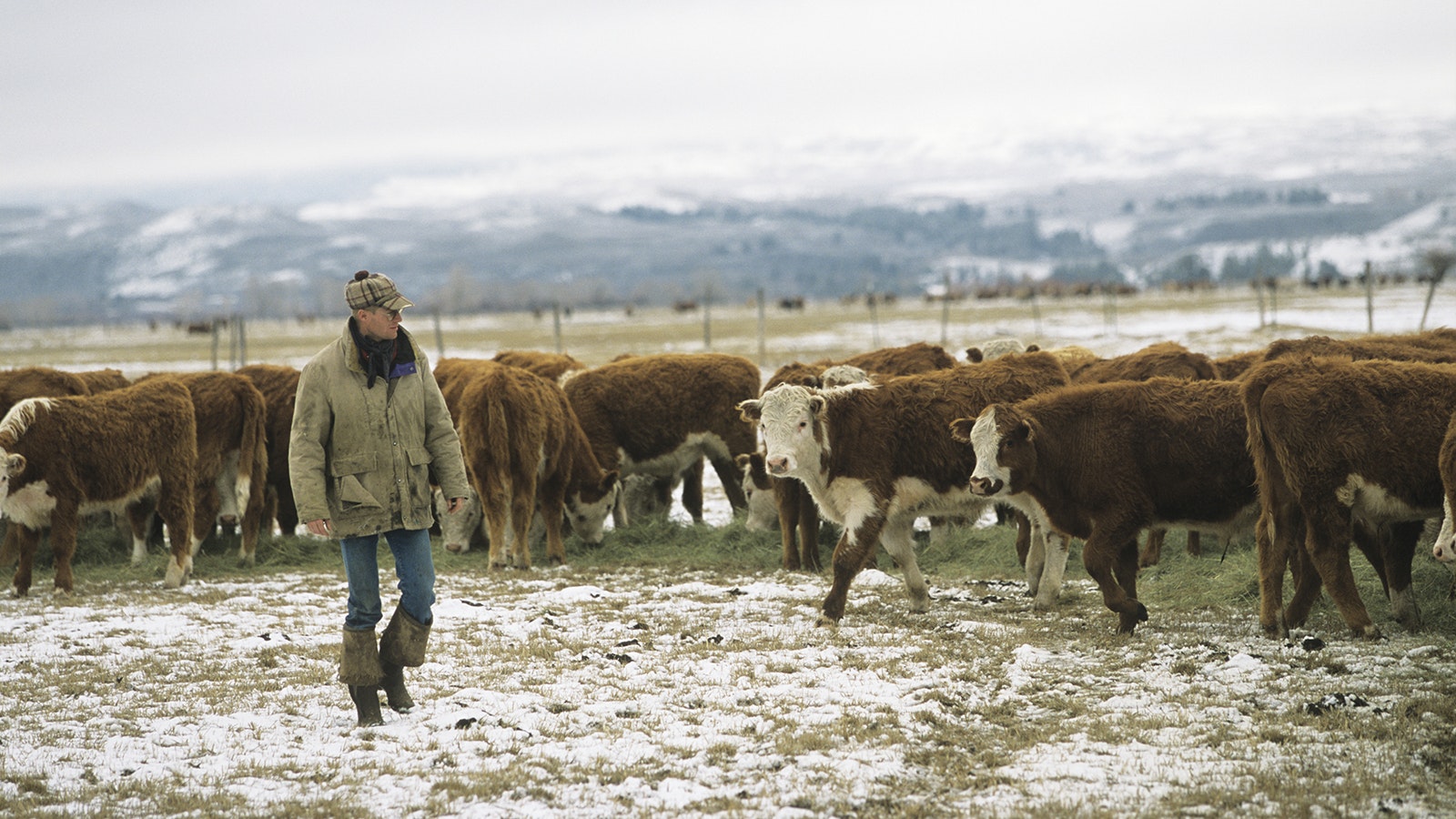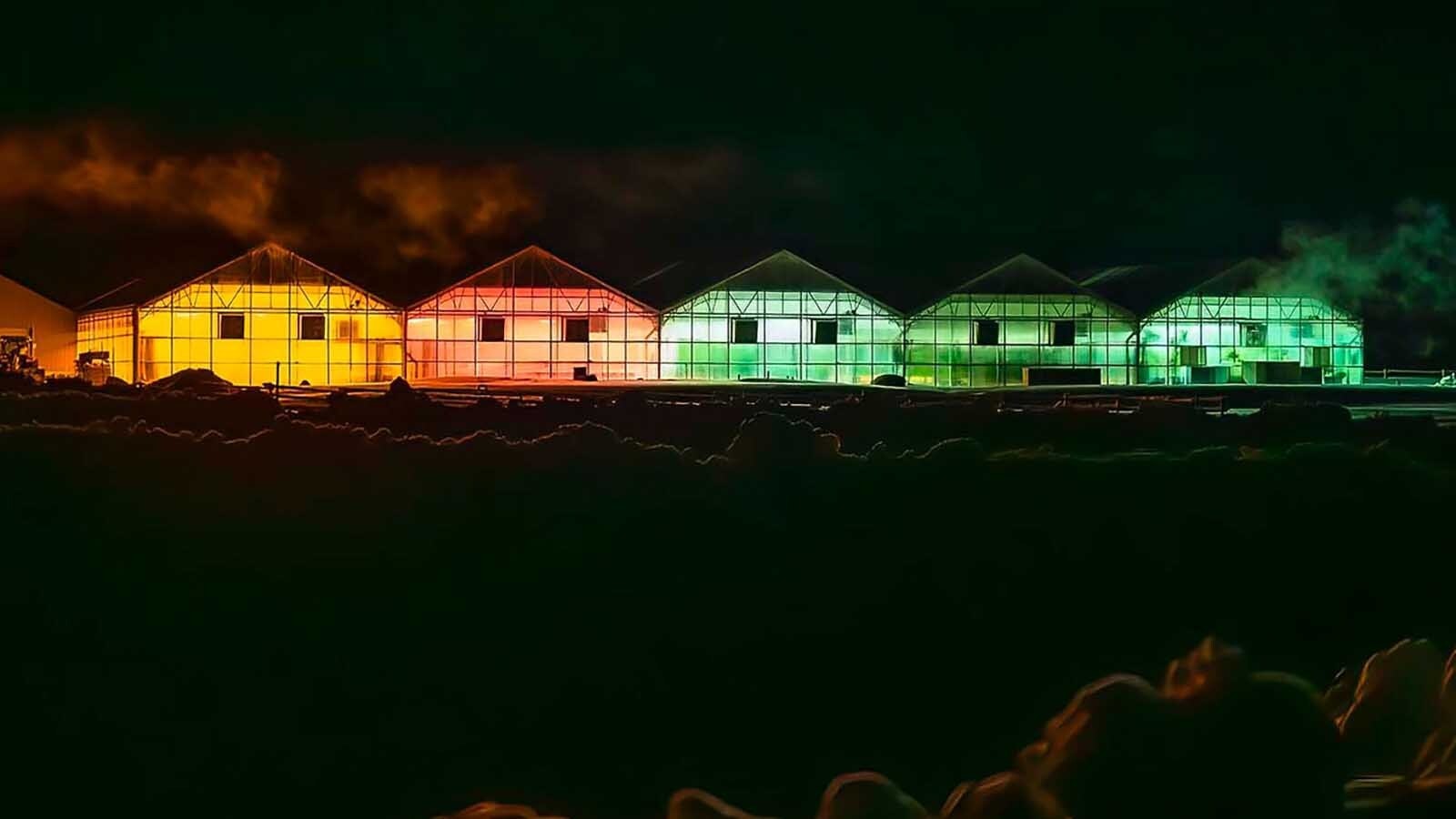CASPER — They investigate bugs, learn pulling bark hurts a tree, swing on hammocks and drink hot chocolate.
Those are part of the learning, adventure and just plain fun 10 kids have found as part of a new preschool in Casper. The school represents a unique concept for Wyoming preschoolers — outdoor “forest school” learning.
It’s what the name portends — outside all the time, even during winter.
“We also talk about how holes are homes, so we don’t want to put a stick in there,” said Heidi Limmer, director, owner and a teacher at Discovery Depot Forest School.
Limmer, along with lead teacher Brandy Marshall, have made Edness Kimball Wilkins State Park on the northeast side of Casper their classroom. The 362-acre park can be explored from their immediate Eagles’ Nest site that includes a campfire pit, three-sided shelter, nearby outhouse and a water spigot.
They plan to stay in session through the school season as long as the temperature and windchill stays above zero. The key is having the 4-and 5-year-old students wearing the right gear because “there really isn’t bad weather.”
“They love it when it snows,” Limmer said. “They are upset that it hasn’t snowed more. They want to be out here when it is snowing a lot.
“They are very resilient. It’s the adults that are apprehensive.”
The preschool launched in the fall after Limmer first came across the forest school concept a couple of years ago.
Students spend four hours each Tuesday and Thursday of the week exploring nature, tackling a project or just following their curiosity into a learning experience.
And they stay away from screens and electronic devices.
European Beginnings
Limmer said the concept has been popular in Europe for many years. It arrived in the United States in the early 2000s and started flourishing during the pandemic years.
She read about a forest school operating in Louisville, Kentucky, and during a trip to the area on another matter called the school and asked to observe for the day.
That experience led to training and certification from the Forest School Teacher Institute in Chattanooga, Tennessee.
“I was able to see how people are implementing this concept in all kinds of environments,” she said. “There are schools in Minnesota that are doing this, schools in Canada doing this, schools down South and in the Midwest.
“There aren’t really any forest schools that I know of in Wyoming. Teton Science Schools does a lot of outdoor education, but it is really different than this model. It’s just really been a fun experience to see if we can do it in this environment and make it work.”
Since the fall, Limmer said the young students have thrived.
As a traditional preschool operator as well, she also sees a difference in the youngsters being able to focus on a task much longer, develop physical agility and collaborate with others to accomplish a task like moving a log.
Children are sent to the school with a backpack that includes a change of clothes, and during the colder months two or three pairs of gloves and mittens.
The school’s handbook gives parents a list of needs for the season that includes winter quality outdoor coats, snow pants, gloves and face covering for the near zero days.
The fire pit is used when needed during the colder temperatures, and they get a nutritious snack and hot drink to help keep them warm.
“We do have contingencies if it’s below zero or the wind is too strong,” Limmer said. “We have an indoor facility that we will go to for those days. We don’t want to put the kids at risk at all.”
‘They Are Just More Resilient’
Marshall said she sees a big difference in how the children respond to the forest school versus the typical preschool where she also teaches with Limmer. She has become a believer in the outdoor concept.
“I never hear the kids whine or want to go home. They are just more resilient,” she said. “They just stick it out — even when we are cold, they stick it out. They are tough and doing great, I love it being out here with them.”
Limmer said she sees the kids becoming more independent and developing confidence. The forest school concept encourages kids’ curiosity, and a typical session may include diving into a topic that suddenly grabs their interest.
As the weather gets colder, she said they will have lessons and opportunities for more movement to keep the kids warm.
Casper parent Kim Ritter has a son, Samuel, enrolled in the school. She said he is excited about the program and his new experiences. He is also part of the indoor preschool operated by Limmer, but Ritter said she has witnessed a difference in him stemming from Samuel’s time outdoors.
“I feel like it’s really grown his endurance, it’s made him a little bit tougher about being out in different weather conditions,” she said.
Parent Ashlee Dyer said her son, Triton, was previously in Limmer’s indoor preschool, but this year is being homeschooled in kindergarten. They have school at home in the morning and she brings him to the state park for the outdoor preschool experience.
“He still loves the other kids and likes to have outdoor time as well,” she said. “I would agree that it’s given him endurance and a desire to be outside.”
State Park Environment
Limmer said she chose the state park for the preschool rather than a city park location because of its more natural state.
There is a pond for water exploration and the river nearby that attracts waterfowl and other animals. There are also the trails. The setting has allowed her to talk about concepts like migration and hibernation.
State Park Superintendent Linley Palazzolo said part of the state park’s mission is to “inspire communities and enrich lives.” She said when Limmer came to her with the outdoor preschool concept it seemed like a great fit for the park.
“What better way to enrich some kid’s life than being able to have school out here at the park,” she said. “You just have that lifelong learning that they can take with them forever. I can’t think of anything better. So that’s what was going through my mind.”
Palazzolo said having the school at the park through the fall and winter season also gives the park additional meaning through the winter season, when there are many less visitors.
Limmer hopes the concept becomes something that catches on with parents and goes beyond her preschool program.
She agrees learning in the out-of-doors, even through the winter, seems like something Wyoming residents would embrace.
“Wyoming’s culture is outside. Many, many people enjoy recreation outside, why can’t we gear our education toward that and help our kids love where they live,” she said. “I feel it should be a really big idea in Wyoming, and I think we will see people embrace this.”
Contact Dale Killingbeck at dale@cowboystatedaily.com
Dale Killingbeck can be reached at dale@cowboystatedaily.com.












